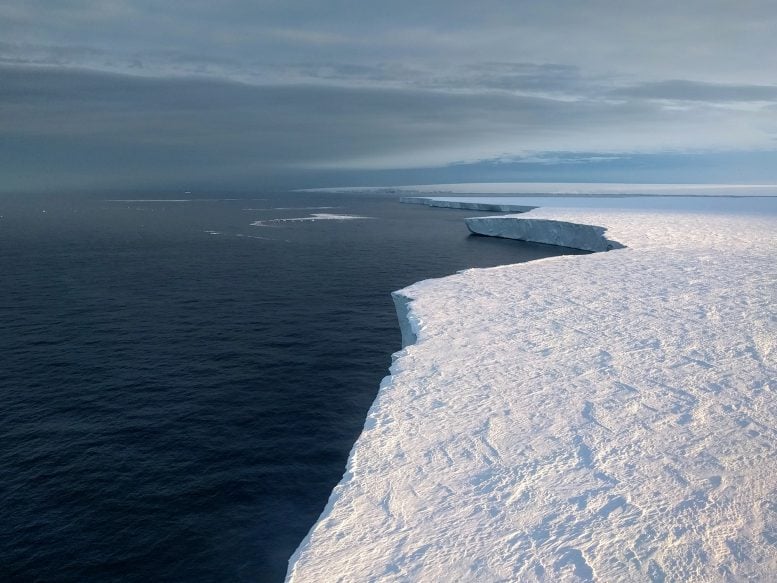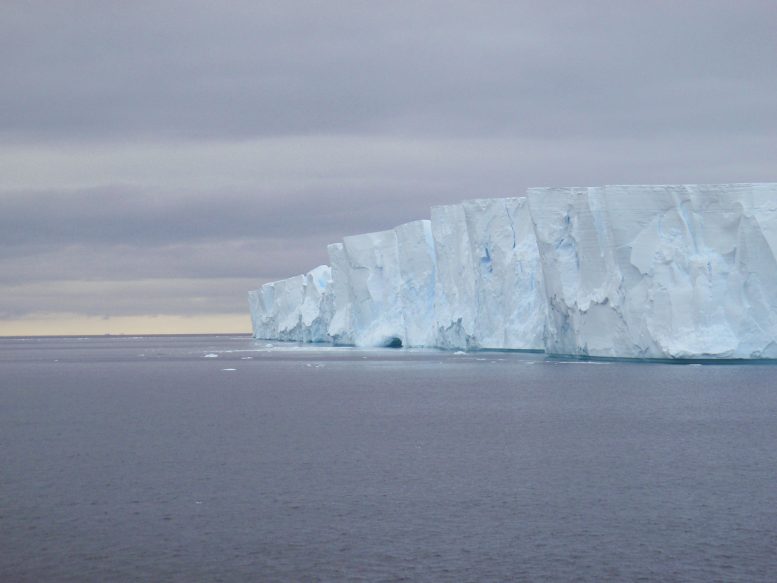A new study published this week reveals the first evidence of a direct link between human-induced global warming and melting of the West Antarctic Ice Sheet. UK-US researchers say that curbing greenhouse gas emissions now could reduce the future sea-level contribution from this region.
Ice loss in West Antarctica has increased substantially in the last few decades and is ongoing. Scientists have known for some time that ice loss in this region is caused by ocean-driven melt, and that varying winds in the region cause transitions between relatively warm and cool ocean conditions around key glaciers. However, until now it was not clear how these naturally-occurring variations in the winds could cause ongoing ice loss.

Published this week in the journal Nature Geoscience the UK-US science team report that, in addition to the natural variations, which last about a decade, there has been a longer-term change in the winds that can be linked with human activities. This is an important result because continued ice loss could cause tens of centimeters of sea-level rise by the year 2100.
The research team combined satellite observations and climate model simulations to understand how winds over the ocean near West Antarctica have changed since the 1920s in response to rising greenhouse gas concentrations. Their investigation reveals that human-induced climate change has caused a long-term change in the winds, and that warm ocean conditions have gradually become more prevalent as a result.
Lead author, Professor Paul Holland from the British Antarctic Survey (BAS), says:
“The impact of human-induced climate change on the West Antarctic Ice Sheet is not simple. This is the first evidence of a direct link between human activities and the loss of ice from West Antarctica. Our results imply that a combination of human activity and natural climate variations have caused ice loss in this region, accounting for around 4.5 cm of sea-level rise per century.”
The team also looked at model simulations of future winds. Prof Holland continues:
“An important finding is that if high greenhouse-gas emissions continue in the future, the winds keep changing and there could be a further increase in ice melting. However, if emissions of greenhouse gases are curtailed, there is little change in the winds from present-day conditions. This shows that curbing greenhouse gas emissions now could reduce the future sea-level contribution from this region.”

Co-author, Professor Pierre Dutrieux from Lamont-Doherty Earth Observatory, Columbia University Earth Institute in New York, says:
“We knew this region was affected by natural climate cycles lasting about a decade, but these didn’t necessarily explain the ice loss. Now we have evidence that a century-long change underlies these cycles, and that it is caused by human activities.”
Co-author, Professor Eric Steig from the University of Washington, says:
“These results solve a long-standing puzzle. We have known for some time that varying winds near the West Antarctic Ice Sheet have contributed to the ice loss, but it has not been clear why the ice sheet is changing now. Our work with ice cores drilled in the Antarctic Ice Sheet have shown, for example, that wind conditions have been similar in the past. But the ice core data also suggest a subtle long-term trend in the winds. This new work corroborates that evidence and, furthermore, explains why that trend has occurred.”
Reference: “West Antarctic ice loss influenced by anthropogenic forcing and internal climate variability“ by Paul R. Holland, Thomas J. Bracegirdle, Pierre Dutrieux, Adrian Jenkins and Eric J. Steig, 12 August 2019, Nature Geoscience.
DOI: 10.1038/s41561-019-0420-9
Never miss a breakthrough: Join the SciTechDaily newsletter.
1 Comment
The wealthiest people have caused climate change. All they think about is making more money at the cost of destroying this earth. They don’t care about God’s paradise earth.